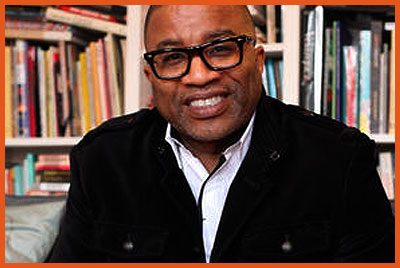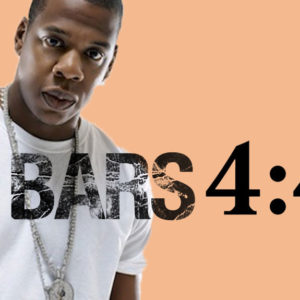“What’s Going On” is MusiQology’s semi-regular news round-up. We curate a selection of relevant news items from across the spectrum of popular culture, adding our own commentary and contextualizing the moments within a broader conversation. In some cases, we’ll be drawing your attention to news items you may have missed; in others, we’ll try and shed a new light on the pop culture moment. With any luck, you’ll be able to spend a little less time browsing the web for what matters. We’ve got you covered.
Money, Cash, Shows
Jay Z and Kendrick Lamar, two of the biggest MCs in hip hop, are set to begin major tours this fall. With people this famous, it’s always fascinating to think about the long tail of business present in such a tour. For Jay, 31 cities in two months comes on the heels of 4:44, an instant-platinum album thanks to distributor-level purchases by Sprint and Tidal that challenge the entire structure of the Billboard system. Jay even received his platinum plaque before the album had been released to the public. As far as his live-concert earnings, they too are wrapped up in a changing music business, as “Hov’s” ten-year $200 million “360 degree deal” with Live Nation means the mega-promoter will have its hands in everything from tickets to t-shirts, which will inevitably be overpriced. Lamar’s DAMN. Tour, which consists of 35 shows beginning later this week and concluding in September, is featuring a series of pop-up boutiques, where the rapper will take over stores throughout the cities where his shows are, likely selling apparel from his affiliate Top Dawg Entertainment. Tours of this size are big business, but the reality is that the money is getting made in a variety of different ways than the show alone. Both artists will hit Philly, with Lamar on July 19 and Jay Z as part of Made in America Festival on September 2-3.
From the Book Page to the Big Screen
We love projects that cross media, space, and time where music and art-making become common threads by which genealogical connections are made and new histories become self-evident. Such is the case with the announcement that Oscar-winning director Barry Jenkins will direct an adaptation of James Baldwin’s 1974 novel, If Beale Street Could Talk. The Baldwin story—which draws its name from a 1916 song by Father of the Blues W.C. Handy—takes place in 1970s Harlem that involves racism, domestic violence, and the difficulties of life. Like Jenkins’s previous work, Moonlight, If Beale Street Could Talk is a story about black characters in their own world, told from a point of view that is not always-already othered by white gazes. We couldn’t be more excited about this work from such a talented and grounded filmmaker.
Label Legends
Music industry stories are often surprisingly rich subjects for study, where we can learn more about the imperatives and goals of influential stakeholders, how that influences the music we heard at a particular time, and how art-making informed the label culture at the same time. Two such stories grabbed our eyes this week: a lengthy Rolling Stone feature on Motown Records’ revitalization and the debut of HBO’s The Defiant Ones miniseries. Motown, perhaps the most influential black music label ever, was hamstrung by an emphasis on its golden age and an unwillingness to change, Elias Leight writes. But now the label is re-emerging thanks to artists like Migos and Lil Yachty, returning the important name in black music to relevance. The Defiant Ones, meanwhile, premiered Sunday as a four-part miniseries exploring the relationship between Dr. Dre and Interscope Records’ Jimmy Iovine. Their partnership helped herald the golden age of hip hop; reflecting upon it is equally nostalgic and productive. “What could have been a vanity project turns out to be a multilayered history of pop music, touching on the rise of Seventies arena rock, the turbulent world of gangsta rap (parts of the movie are akin to a documentary version of Straight Outta Compton), and the digital revolution (up to Iovine’s shock when Dre accidentally announces the Apple deal on Facebook),” David Browne writes at Rolling Stone. These lenses into the music industry will continue to generate interesting conversations and, if we have anything to say about it, scholarship.
https://www.youtube.com/watch?v=qT5FeylUWO0
GRAMMYs Changes
The GRAMMYs have become something of a special interest for us both here at MusiQology and elsewhere (our managing editor is developing his PhD dissertation to research the racial history of the awards), so expect a great deal of golden gramophone coverage in the months to come. Earlier this month, the GRAMMY Awards announced a set of changes in advance of the 2018 ceremony, which will be held at Madison Square Garden on January 28, 2018. These included the first-time advent of online voting, an expansion of the definition of what an album is in certain genres, and, most significantly, the establishment of a Nominations Review Committee for a set of fields that includes the rap categories. Online voting should help create broader representation (ease of access to the vote is always a good thing), and the album changes are mostly cosmetic. But the most notable change is the “nomination review” committee for the rap categories. This type of committee is already in place for many of the larger awards—including the big three of Album, Song, and Record of the Year—and has been in place since 1989 to serve, in the GRAMMYs words, “as an additional round of checks and balances to eliminate the potential for a popularity bias that puts emerging artists, independent music, and late-year releases at a disadvantage.” Over the last few years, there have been a lot of high sellers in the category’s nominations. Might that be because of this kind of bias? Or does it say something about what sells in hip hop? Answers to those questions and more, we hope, will follow in the coming months and years.

 Share On Facebook
Share On Facebook Tweet It
Tweet It







